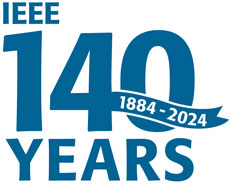Nominators often ask, “How can I improve my award nomination?” or “What is the secret to preparing a winning nomination?” While it would be presumptuous to promise that the following ideas will result in a successful nomination, here are some that may help. Many of them appear to be obvious, but it is surprising how many nominators neglect to consider these points.
Preparing a good nomination should not require much work, especially if you know the candidate and their achievements. A well-written nomination should not be lengthy. The best ones are concise and clearly express the impact of the contributions of the nominee(s). The most time-consuming activity is to select people who will support the award with a letter of recommendation and follow up to remind these authors to submit their letters on schedule.
As the nominator, your most important responsibility is to nominate someone who has made an important contribution to the field of interest covered by the award. Nominators should always take two simple steps:
1) Review the list of previous recipients to obtain a benchmark for the quality of the contributions of these recipients.
2) Make sure that the contributions of your nominee(s) satisfy the description of the award. It is not unusual to read a nomination of a person who has done outstanding work, but the work does not satisfy the description of the award.
Members of the award selection committees typically have expertise in the field covered by the award. They may even know the nominee and their contributions. Put yourself in the position of a member of the selection committee and ask yourself the question, “What information would I need to judge this candidate?”
Now for the write-up’s content: provide a specific, meaningful description of the candidate’s contributions. Don’t say something equivalent to, “They have done good work.” Rather, be specific. This specificity is the most important information that you can provide in the nomination. Also, be specific in describing the impact of the contribution. The impact may include the economic or monetary value of the product and/or services of the contribution, influence on the work of others, or social impact. Don’t neglect to ask a colleague to do a critical review of your nomination. In addition, ensure that your recommended citation is brief and contains a specific description of the candidate’s contribution. In many cases, the citation is the first item that is read by a member of the selection committee, so it is important to make a good first impression.
Sometimes, selecting people to write meaningful supporting letters can be the most challenging part of the preparation for a good nomination. Make sure that these people are familiar with the contributions of your candidate and that they support your nomination. Obtain supporting letters from people who have used the contribution of the candidate. Also, ask supporting letter authors to avoid copying what you wrote in the nomination. The selection committee treats these letters very seriously and expects the author of the letter to provide his perspective on the specific contributions of the candidate.


